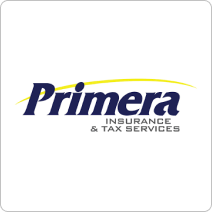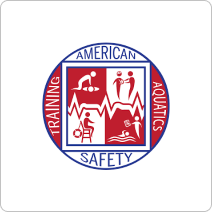1. What is the Telephone Consumer Protection Act ("TCPA")?
Telemarketing has been used as a direct marketing tactic for decades, starting in the 1970s. In 1991, the Federal Communications Commission (FCC) released the TCPA in order to protect consumers from unsolicited telemarketing.
TCPA is a law passed in USA to regulate telemarketing calls to protect the interest of consumers in the USA. Hence, all telemarketers are advised to comply with TCPA and its compliance while persuing any kind of telemarketing activities in the USA.
Hence, keeping the foregoing in mind, we have provided responses to some common queries asked by the telemarketers or anyone trying to use the Vodex technology. Having said that, if you need any specific legal advice on TCPA and / or any related laws globally, Vodex has engaged an independent legal expert law firm, RSD Bajaj Global Law Firm which can facilitate any specific queries in this regard.
2. Is AI based automated calls permitted / legal under TCPA in USA markets?
First of all, this is to clarify that AI-based automated calls are not prohibited by TCPA or any other corresponding law globally, however, before making such AI based automated calls, the telemarketer (i.e. you in this case by leveraging Vodex technology) is required to obtain express consent from the consumers that they consent to receive telemarketing calls (automated) from you, the telemarketer.
In practical terms, the details of what is the nature of consent, how to obtain such consent in compliance to applicable laws and all related FAQs are provided below.
3. In what manner is the consent required to be taken by the telemarketers?
Consent agreements can be collected online or in person. Electronic or digital forms of signature are acceptable from consumers, including agreements through email, website form, text message, telephone keypress, and voice recording.
In practical terms, any telemarketer may take this consent in their comprehensive terms and conditions which is agreed by consumer via a simply click-through agreement (i.e. tick of a box). If you need any specific legal advise on how to create a simply click-through agreement keeping your use-case and with legalities.
4. What are the essentials of consent under TCPA?
Getting express consent involves providing consumers with a clear, unambiguous disclosure that states that:
• They will receive future calls that deliver autodialed and/or pre-recorded telemarketing messages on behalf of a specific telemarketer.
• Their consent is not a condition of purchase.
• They must designate a phone number at which to be reached.
5. What the TCPA requires telemarketers to disclose?
Under the TCPA, telemarketers must approach and communicate with consumers respectfully and within the law. Each telemarketer must provide his or her name, as well as the registered brand name that they are contacting consumers on behalf of.
6. Is there a specific time in which one can make telemarketing calls?
Telemarketing calls can only be made between 8 a.m. and 9 p.m. (based on the local time of the recipient), with additional day and time restrictions in various states.
7. Is it necessary to record telemarketing calls?
If a telemarketer records its telemarketing calls, which is recommended, there must be clear notice given to the consumer at the beginning of each call that it will be recorded for quality assurance purposes and that the recording will be maintained as a record of the transaction.
8. What is the National Do Not Call List / Regulations (DNC Regulations) & how to comply with DNC Regulations?
The National Do Not Call (DNC) registry takes consumer rights a step further. Through the DNC registry, telemarketers can access a list of phone numbers belonging to consumers who wish to actively limit the telemarketing calls that they receive.
However, the DNC Regulations do not apply to telemarketers in the following situations:
8.1 If they have express written consent to call the consumer.
8.2 If they have an established business relationship with the cunsumer (as long as the consumer has not asked to be placed on the seller’s internal DNC list), if the consumer has done one of the following:
8.2.1 Purchased, rented or leased the seller’s goods or services, within the 18 months prior to the telemarketing contact.
8.2.2 Inquired about or applied for the seller’s goods or services within the 3 months prior to the telemarketing contact.
9. Who is responsible to do compliances under the TCPA while deploying Vodex technology products and services?
The business taking on license to leverage the Vodex technology shall be responsible for all the compliances under TCPA or any other laws of the state. In this regard, it may be noted that these frequently asked questions responses are being provided as non-binding immediate responses for your convenience. However, if you want specific legal advice on same, then Vodex is giving contact of an independent legal expert law firm, RSD Bajaj Global Law Firm which can advise you on the specific queries. To connect with RSD Bajaj Global Law Firm, you may send an email at rsd@rsdbajajglobal.com.
Our Thriving Community










